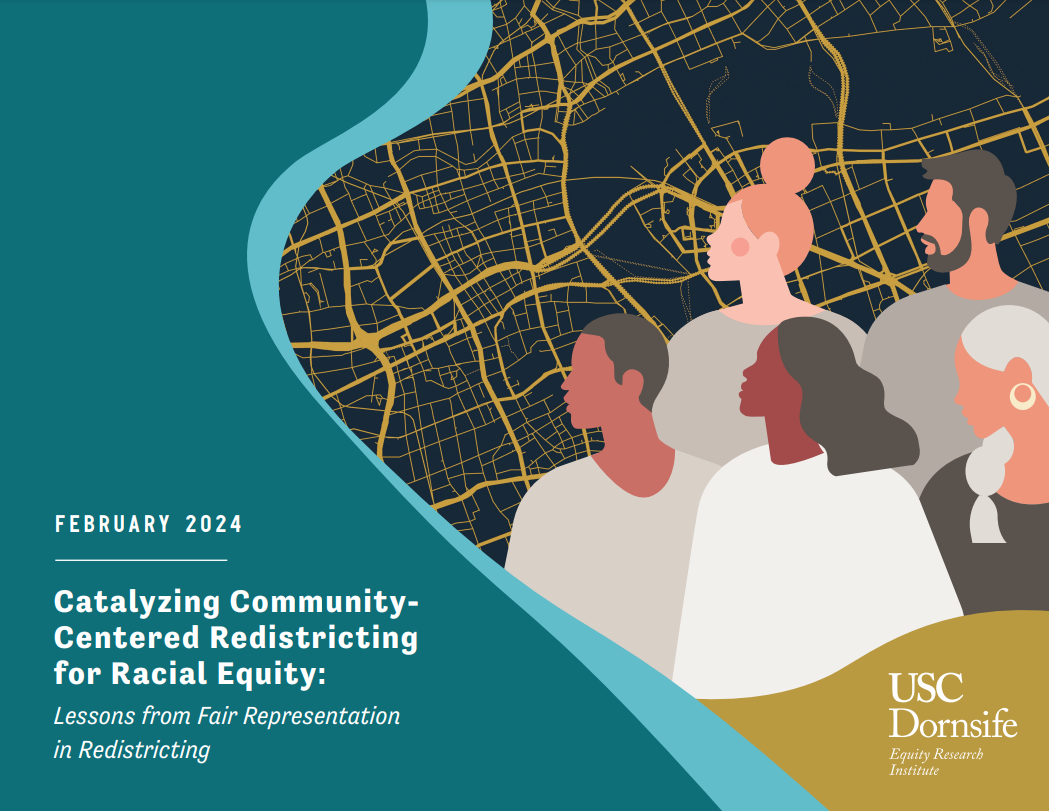
February 2024
Commissioned by Fair Representation in Redistricting
Lead authors: Jennifer Ito and Joanna Lee
Foreword: Manuel Pastor
Research team (in alphabetical order): Lexie Abrahamian, Kerry Mitchell Brown, Edward Chauca, Kathleen Clyde, Khia Duncan, Vanessa Carter Fahnestock, Dalia Gonzalez, Kaitlin Gravitt, David Kimball, Jaboa Lake, Shawntae Mitchum, Shweta Moorthy, Kirk Noden, Margarita Obregon, Deepak Pateriya, Rachel Rosner, Irene Franco Rubio, and Ashley K. Thomas.
We live in an era of political polarization. Communities of color hoping to strengthen their role and influence in a multiracial democracy find themselves facing a dangerous and powerful authoritarian, anti-democratic, and racist set of players and agenda. Redistricting—the process of redrawing political district boundaries—is one tool that is being wielded to weaken our democracy. Such attacks undermining our principle of “one person, one vote” is precisely because the nature of our “persons” is shifting.
Catalyzing Community-Centered Redistricting for Racial Equity: Lessons from Fair Representation in Redistricting is an important read for those who care about the future of our democracy—and want to find ways to get involved in redistricting. For the 2021-2022 redistricting cycle, a set of philanthropic leaders formed Fair Representation in Redistricting (FRR), a strategy to support historically excluded and under-represented communities to be active and influential players in advancing fair redistricting in states across the country.
This report describes FRR strategies and core investments, highlights the successes and challenges of catalyzing a community-centered approach to redistricting, and offers recommendations. The punchline: While a strong foundation was laid in this recent cycle, much more is needed to achieve fairer processes and outcomes. We recommend that FRR become a sustained collaborative to build upon the emerging field of community-centered redistricting it has seeded and to pair its support for the one- or two-years of line drawing with ongoing efforts to bring governing power back to the people.



